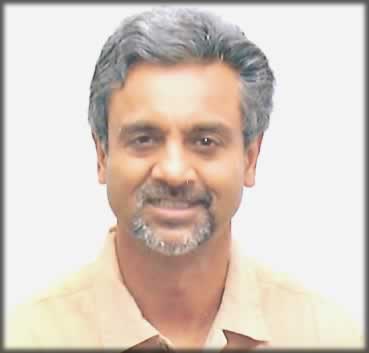Professor of Energy Management Dr. Jigar Shah made a plenary presentation on “Sustainable Development” at the School of Engineering Practice, McMaster University, on September 10, 2007. Dr. Shah, who teaches the Analytical Tools in Energy Management course in the E&EM program, argued that much of the research and development in major energy companies has been focused on fossil fuels. If they do not change, these companies stand the risk of going the same way as the previous U.S. giants in steel, auto, retail department stores, and mini computers.
Prof. Shah expressed that energy efficiency may be considered the key component of sustainable energy. Significant room for improvement exists in all three end-use sectors – transportation, buildings and industry. Efficiency related to the transportation sector can be greatly aided through stricter fuel efficiency standards and design of lighter cars. The principles of green building design, proper building controls, efficient HVAC, lighting and insulation can significantly reduce current energy use. In the industrial sector, many plants would benefit from measures such as cogeneration, waste heat recovery, and improved design and maintenance of key energy systems.
Prof. Shah referenced a recent McKinsey study that indicates that there is a large opportunity to contain accelerating energy demand growth in practical, cost-effective ways. The key is boosting energy productivity—the level of output we achieve from the energy we consume. By capturing the potential available from existing technologies with an internal rate of return of 10 percent or more, we could cut global energy demand growth by half or more over the next 15 years. The top five opportunities targeted by McKinsey include bringing China’s industries to best practices, replacing least efficient power generation capacity worldwide, setting stronger standards for new buildings in China, improving energy efficiency of residential buildings in the USA and removing transportation subsidies globally.
Noting that, Shah said if we continue with the current energy use pattern into the future, we would double carbon emissions by the year 2050. Professor Shah then presented a stabilization framework that does not concede that doubling of carbon emissions is inevitable, and an approach for using various existing technologies as means to reduce the emissions. The stabilization framework permits a quantitative discussion of cost, pace, and risk, thus facilitating comparisons and trade-offs.
Dr. Shah is an internationally recognized expert in the energy field, specializing in energy efficiency, cleaner production and sustainability for the manufacturing sector. With 25 years of experience in the energy field, he has served in various capacities, including Engineer for Exxon, Energy Manager for Alcoa aluminum plants in Russia, and the head of European Operation of an international energy consultancy. Dr. Shah is well-versed in development and implementation of strategies, management of complex engagements related to the development of new projects, purchase and sale of assets, purchase and sale of fuel and power, and modifications in technology and operations to reduce energy cost and improve efficiency. He has significant experience in developing countries and a strong international track record. He currently directs a new program at the
International Finance Corporation (World Bank Group) to promote investment in Cleaner Production.


